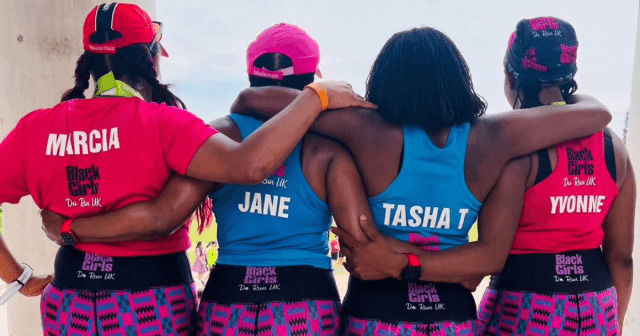You’ve crushed the miles, crossed the finish line, and earned that coveted marathon medal. Completing a marathon is a huge accomplishment, but the journey doesn’t end there. While months of training go into conquering 26.2 miles, what to do after a marathon often gets left by the wayside.
But listen up, champions: to avoid injuries, illness, and burnout, post-marathon recovery is just as important as those early morning runs. Here, we’ll delve into what happens to your body after the big race and unveil the most important aspects of recovery plan to get you back on track and feeling your best.
WHAT HAPPENS TO THE BODY
Whether you’re a seasoned marathoner or a first-timer, one thing’s for sure: your body has been through a lot. From muscle breakdown to temporary immune dips, those miles take a toll. By understanding what happens to your body after a marathon, you’ll know why it’s essential to have a recovery plan to get you back to feeling your best as soon as possible.
DAMAGE TO MUSCLES AND TENDONS
That post-marathon stiffness we all know and (probably don’t) love? That’s just the tip of the iceberg. While the dreaded DOMS (delayed onset muscle soreness) might fade after a few days, expect some deeper muscle damage to linger for several weeks.
Marathons push your body to its limits, and microscopic tears develop in your muscle fibers. Research has shown inflammation and fiber breakdown happens during the race, taking muscles roughly two weeks to regain normal strength.
But fear not. Your body is built to bounce back. On a cellular level, studies suggest a regenerative response kicking in within eight to twelve weeks. This time is where proper recovery comes in.
OTHER SYSTEMS OF THE BODY MALFUNCTIONING
Sure, your legs might feel like they ran a marathon (or ten), but they’re not the only teammates needing some TLC. The incredible stress of the marathon pushes your whole body to its limits, and some other systems might be feeling a bit off-kilter, too.
For example, researchers at Yale found that most amateur marathoners experience temporary kidney stress after the race, likely due to dehydration and exertion. This stress can take days or even weeks to recover fully.
Your immune system also takes a temporary hit after the race. Increased stress hormones like cortisol can leave you more susceptible to catching a cold for a few days.
While these are certainly not the only systems in the body affected by such a grueling endurance event, focusing on them provides a basis for recovery time in the following weeks.
WHY YOU NEED TIME OFF
Even the most dedicated runners might feel a powerful urge to lace up their shoes just days after conquering a marathon. Your body might feel surprisingly good, and that post-race energy can be intoxicating. But hold on there, champ – while you might be feeling spry, taking some time off is absolutely essential for a smooth recovery.
Even experienced runners, who might bounce back quickly, will experience lingering fatigue for a week or two. This fatigue might manifest subtly, like simply feeling a bit sleepy, tired, and slow in the evenings. That’s why, regardless of how recovered you think you are, returning to hard training too soon is a recipe for disaster. It increases your risk of injuries, which can sideline you for weeks or even months – way more time off than a proper recovery period.
And even if you manage to dodge the injury bullet, jumping back into intense training can actually hinder your performance in future races. Overtraining is a sneaky gremlin that can wear down your body in subtle ways, leading to a drop in performance and a general feeling of being “off.”
Let’s not forget the mental side of things, either. The long training miles leading up to a marathon can be mentally draining, even for the most seasoned runners. Taking a break from structured training allows your mind to refresh and refocus. When you eventually return to your running routine, you’ll approach it with a renewed sense of purpose and excitement, ready to conquer your next big goal.
WHAT TO DO IN THE WEEKS THAT FOLLOW A MARATHON
While the months leading up to the race were all about meticulous training and pushing your limits, the following weeks are dedicated to a different kind of challenge: recovery.
Here’s the truth: peak fitness is a fleeting state, a precious window that opens for just a few races – maybe just twice a year. The rest of the time, even the most dedicated runners need strategic recovery periods to ensure long-term success. It’s not just about giving your body a physical break; your mind craves a reset, too. Think of it like a strategic pause button – a chance to recharge and rebuild, not just physically but mentally as well.
The counterintuitive part is that you need to take a step back and detrain before you can reach new heights in your running journey. Deload periods of intentionally reduced training are crucial to the training cycle. Elite athletes understand this – progress isn’t a straight line to the top. It’s a series of peaks and valleys, with each recovery phase laying the foundation for a stronger, more resilient runner to emerge.
So, the urge to cling desperately to that peak fitness you achieved on race day? Resist it. Letting go, allowing yourself to detrain and losing some of that hard-earned fitness is actually the key to a full recovery. It’s like letting go of the gas pedal after a long climb, allowing your engine to cool down before the next ascent. Embrace the feeling of being sluggish and fatigued – it’s a sign your body is rebuilding.
While there’s no one-size-fits-all approach to recovery, some general guidelines exist. The adage “a day of recovery for every mile raced” might sound extreme, but it highlights the importance of taking things slow. So, here’s a roadmap for what to do after a marathon to ensure you’re not just physically ready for your next challenge but mentally invigorated and excited to conquer it.

HOW TO MENTALLY RECOVER FROM A MARATHON
You’ve pushed your limits, dug deep, and achieved something incredible. Now, it’s time to celebrate, reflect, and most importantly, recharge your mental batteries.
Embrace the Emotional Rollercoaster: Reflect and Celebrate
The post-race period can be a whirlwind of emotions. Elation at achieving your goal, frustration with missed personal bests, or even a tinge of sadness that the journey is over – all these feelings are valid. Give yourself permission to feel them all. Process the race, acknowledge the highs and lows, and take pride in your accomplishment. Reflect on your training journey, the challenges you overcame, and the lessons learned.
Hit the Pause Button: Find Relaxation and Unwind
Like your body, your mind craves a break from the intense focus and discipline required for marathon training. Seek out activities that promote relaxation and de-stressing. Plan a calming vacation or explore nature with a chilled hike or a walk with your dog. Actively eliminate sources of stress in your daily life – delegate tasks, say no to extra commitments, and prioritize activities that bring you peace.
Rekindle the Spark: Embrace Play and Exploration
Once you’ve allowed yourself to unwind, reignite your inner spark. This time is for rediscovering the joy of play and exploration. Engage in activities that pique your curiosity and have nothing to do with running. Try a new hobby, whether it’s pottery, photography, or learning a language. Plan a trip to a new place, immerse yourself in a different culture, and create fresh memories that have nothing to do with miles or pace.
Revisit Your Why: Re-evaluate Your Goals
Finally, take some time to revisit your ‘why.’ Why do you run? What purpose does running serve in your life? A clear purpose is a powerful motivator, but it’s okay if your goals have shifted. Whether you want to focus on shorter distances, prioritize different races, or simply enjoy a more casual running routine, give yourself space to re-evaluate.
This introspection might not lead to a complete overhaul of your goals, but even a subtle shift in perspective can make a big difference. By acknowledging your changing motivations, you’ll be setting yourself up for a more fulfilling running journey in the long run.
HOW TO PHYSICALLY RECOVER FROM A MARATHON
Your body is in a state of triumph – and temporary vulnerability. Here’s why each step is crucial for getting you back on track and feeling stronger than ever.
Shield Yourself: Prioritize Hygiene and Immune Support
Think of your body post-marathon as a construction zone. Resources are being directed towards repairs, making you more susceptible to unwelcome guests – like viruses and bacteria.
Here’s where vigilance comes in. Maintaining good hygiene, especially when traveling, is key. Consider wearing a mask on airplanes and in crowded places. Incorporating immune-supporting supplements can also give your body an extra boost.
Refuel and Rebuild: Prioritize Sleep and Nutrition
Imagine your body as a car that just completed a grueling cross-country trip. Just like the car needs a full tank and a thorough servicing, your body needs optimal fuel and TLC to recover properly.
Don’t skimp on sleep. Aim for 7-8 hours of quality rest each night. It allows your body to repair muscles and regulate hormones crucial for recovery. Nutrition is equally important. Ditch the restrictive diets and prioritize a balanced, nutrient-rich diet that provides the building blocks for muscle repair.
Gentle Movement is King: Embrace Active Recovery
While the urge to jump back into intense training might be strong, resist it. The first few days post-marathon are best dedicated to low-impact activities like walking or gentle yoga. These promote blood flow and help your body return to a state of normalcy.
Think of it like a cool-down after a workout but stretched over several days. Gradually reintroduce running, starting with very short, easy runs and slowly increasing distance over the following weeks (see the suggested schedule below). Remember, listen to your body. Go slower than you think you need to and prioritize ease of movement over speed.
Respect the Process: A Step-by-Step Rebuild
Think of your pre-marathon training as a meticulously constructed pyramid with a strong foundation (strength exercises), a supportive middle (tempo runs), and a sharp peak (race-specific training). The post-marathon rebuild is no different.
Resist the urge to skip steps or rush back to your peak fitness. Start from the beginning, incorporating priming exercises for mobility and strength. Gradually reintroduce tempo runs and race-specific training as your body strengthens. Remember, you can’t skip steps on the way back up – each element plays a crucial role in building a resilient and injury-resistant runner.
YOUR ROAD TO RECOVERY
The key takeaway from all of this is to be patient. Recovery itself is a marathon, not a sprint. By prioritizing hygiene, sleep, nutrition, and a gradual, step-by-step return to training, you’ll be setting yourself up for a stronger, more fulfilling running journey in the long run.
Remember, building back too aggressively can lead to injuries that sideline you for even longer. So, take care of yourself. You’ve earned it!

If you liked this post, don’t forget to share so that others can find it, too.
Or give it a thumbs up!
I like this article
Please note that the information provided in the Polar Blog articles cannot replace individual advice from health professionals. Please consult your physician before starting a new fitness program.




